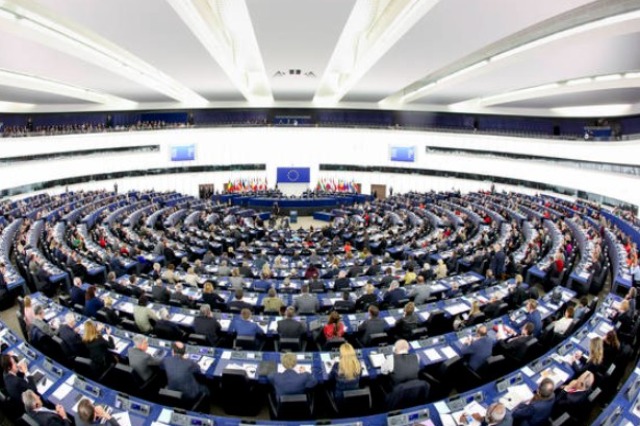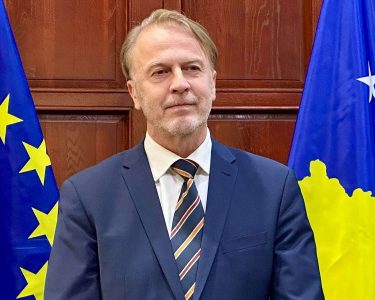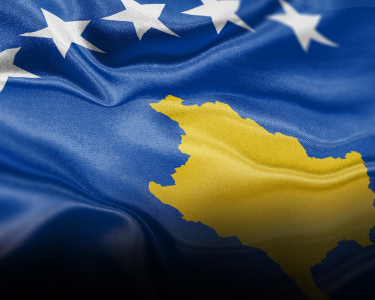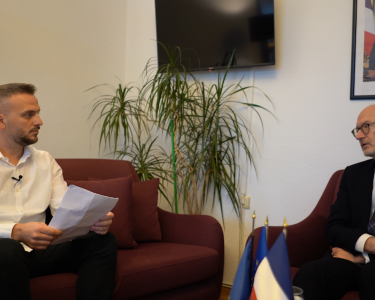Kosovo’s membership in the Council of Europe is not expected to be on the agenda of the Committee of Ministers of the Council of Europe today, where it would be possible to vote for its admission to this organization. However, government officials expect their commitment to the Association of Serb-majority Municipalities (ASM) to be reviewed by the Council of Ministers, with the hope that Kosovo’s membership will be considered at an extraordinary meeting later this year.
This, in spite of the fact that Kosovo said on Thursday that it has sent a letter to the Council of Europe to inform it that it is preparing the draft statute for the ASM, to be submitted for consideration by the Constitutional Court.
Extraordinary meetings of the Council of Ministers are rare, and for the last time such a one took place after the Russian aggression in Ukraine, to exclude Russia from the Council of Europe.
Gerald Knaus, from the European Stability Initiative, who has closely followed Kosovo’s journey towards the Council of Europe, thinks that the letter came a little late, but the member countries should say that they support the initiative of Kosovo and should call for an extraordinary summit soon, hopefully within a few weeks.
On April 16, Kosovo received the green light from the Parliamentary Assembly of the Council of Europe to join this mechanism. However, its inclusion in the agenda of the meeting of the Council of Ministers held today was impossible, since Kosovo refused to take steps towards the establishment of the Association.
Although the report approved by the Parliamentary Assembly of the Council of Europe states that the establishment of the Association should be a “commitment after membership” for Kosovo, the countries of the “Quint”, as the main five Western countries are known, consisting of the United States, France, Germany, Italy and the United Kingdom, have seen the issue of this membership as an opportunity to exert pressure on the government of Prime Minister Albin Kurti regarding this issue.
The Prime Minister of Kosovo, Albin Kurti, said last week that his government does not accept the conditionality with the establishment of the Association, calling such conditionality “absurd”.
The Minister for Foreign Affairs and Diaspora of Kosovo, Donika Gërvalla, announced yesterday that she had informed the Council of Europe that Kosovo intends to prepare a draft statute and send it to the Constitutional Court for interpretation at the end of the month.
Gërvalla said that he expects the Council of Europe to take this step of Kosovo seriously and accept Prishtina as the newest member of this organization for human rights.
However, Bekim Kupina, adviser to the president of Kosovo, Vjosa Osmani, said in a written statement that the letter addressed to the Council of Europe was not advised nor agreed with the president Osmani. The statement states that “President Osmani only supports positions and actions previously consulted, coordinated and agreed with the institution of the Presidency as a constitutional institution with clear competences in the field of foreign policy and as the guardian of the constitutional functioning of the institutions. This letter is not like that”, the statement says.
The opposition parties called the government’s action wrong and delayed. The head of the parliamentary group of the Democratic League of Kosovo, Arben Gashi, said that it is known that the meeting of the Council of Ministers will be held on May 16 and 17 and things should not have been left to the last minute.
Member of Parliament from the Alliance for the Future of Kosovo, Time Kadrijaj, described the government’s letter as meaningless.
Dritëro Arifi, professor of European integration, said that the government’s action should have happened much earlier.
The Council of Europe yesterday and today is marking the 75th anniversary of its establishment. This international organization for human rights, democracy and the rule of law in Europe, which is headquartered in Strasbourg.
The Council of Europe was founded on 5 May 1949 to achieve greater unity among member countries on the basis of their shared traditions of political freedom. The greatest ideologues of the Council of Europe were Winston Churchill, Robert Shuman and Konrad Adenauer.
The Council protects freedom of expression and media, equality and minorities in member countries. This organization has also carried out campaigns for the protection of children, against hate speech and for the rights of the Roma, who constitute the largest community in Europe.
The Council of Europe helps member countries to fight corruption and terrorism and to carry out appropriate judicial reforms.
Its group of constitutional experts, known as the Venice Commission, provides legal advice to countries around the world. Being an international organization, the Council of Europe cannot make laws, but it has the ability to promote the implementation of international agreements reached by member countries on various topics.
The best-known body of the Council of Europe is the European Court of Human Rights, which applies the European Convention on Human Rights.








